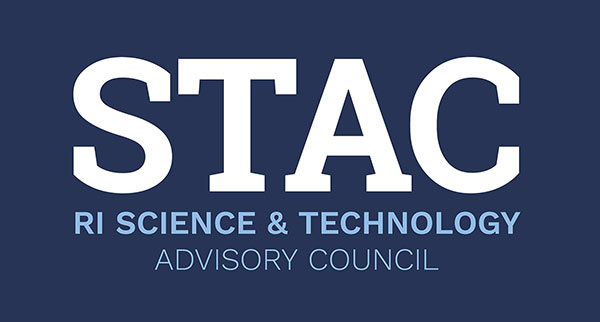Governor Lincoln D. Chafee and the Rhode Island Science & Technology Advisory Council (STAC) today announced recipients of six Collaborative Research Grants. The awards will provide $445,092 in support of six projects, representing 15 scientists from small businesses, research universities and hospitals across Rhode Island. The program is designed to advance research projects that are collaborative across institutions, well positioned to receive follow-on funding and with significant technology development and commercialization potential.

“This is the ninth round of STAC grants, an important source of jobs and growth to our economy. They are aimed at collaborative research projects, and bring together the experts from the private sector and our hospitals with the great minds at work at our colleges, universities, and medical institutions,” Governor Chafee said. “I congratulate the grant recipients and look forward to learning more about the innovation and results the funding may yield.”
Award recipients include academic and industry scientists pursuing research in medicine, cyber security, engineering, chemistry, and pharmaceutical sciences.

These grants are the ninth round of STAC awards aimed at facilitating collaborative research in Rhode Island. To date, STAC has invested $9.8 million projects that have yielded a return of $36 million back to the state in the form of grants for continued research, new federal programs, infrastructure improvements, commercialization of new products and venture funding for new companies.

More about the Collaborative Research Grants Awardees
Antiviral & immunomodulatory effects of Inter-alpha inhibitors in Dengue infections ($70,092)
The Dengue virus is a worldwide problem with as many as 400 million people infected yearly. Yet for Dengue and many other acute life-threatening inflammatory diseases there is no vaccine. Bringing together complementary expertise in virology and immunology, scientists at URI and a Rhode Island small business will test the potential of a naturally occurring protein to treat multiple diseases including Dengue. The goal of the project is to confirm the viability of this protein as a broad spectrum therapeutic. With this, the team hopes to develop an industrial scale facility in the state that can provide sufficient material for manufacturing and stockpiling.
Collaborators:
Carey Medin, University of Rhode Island
Yow-Pin Lim, ProThera Biologics, Inc.
Cyber security situational awareness with social-aware data integration ($75,000)
Data about cyber behavior comes in a variety of forms and each data source has its own value. When collected and visualized as a whole, these sources can provide rich information beyond that identified through the individual sources. This team’s efforts will focus on examining how various sources of analytic data can be used to identify malicious cyber behavior. The project will bring together a research university and a small business to provide proof of concept for development of a new commercial product line.
Collaborators:
Lisa DiPippo, University of Rhode Island
William Matuszak, Adaptive Methods, Inc.
Next generation data storage systems for big data applications ($75,000)
Dramatic advances in computing have created a growing demand for data storage architecture and materials that can deliver the superior performance and reliability required by big data applications. Working together, scientists in the engineering and physical sciences departments at the University of Rhode Island and Brown University will combine their talents to develop the next generation of storage to meet the demands of the big-data trend.
Collaborators:
Gang Xiao, Brown University
Qing Yang, University of Rhode Island
Development of a new molecular imaging platform: biosensor-enhanced Xenon-129 MRI ($75,000)
Today’s medical imaging technology generates high resolution, 3-D images for anatomic diagnosing, but requires additional invasive or dangerous CT and PET tests for further diagnosis. This team is the first in the United States to bring together their unique set of expertise and capabilities to develop a new class of “smart” biomedical imaging agents. When developed, this new class of molecular imaging will enable clinicians to use probes to see biochemical properties of maladies such as cancer, Alzheimer’s disease and even traumatic brain injuries.
Collaborators:
Brenton DeBoef, University of Rhode Island
Li-Qiong Wang, Brown University
Novel SiRNA delivery technology via biomimetic nanomaterial for treatment of joint arthritis ($75,000)
Currently there are no approved therapies to treat post-traumatic arthritis, a common injury affecting 5.6 million Americans. Although siRNA has shown great therapeutic potential, it is challenging to deliver it into dense joint cartilage. By combining interdisciplinary expertise in biology, nano materials, clinical research and pharmaceutical science, this team will work to further test a nanomaterial whose tiny size and novel shape shows great promise as a delivery system.
Collaborators:
Qian Chen, RI Hospital
Wei Lu, University of Rhode Island
Yupeng Chen, RI Hospital
Richard Terek MD, RI Hospital
Development of an ultra-high speed infrared imaging system to image dynamic deformation and fracture in materials ($75,000)
This team seeks to develop an ultra-high speed infrared (IR) microscope to create new research grade instrumentation in the area of dynamic material behavior. Combining complementary expertise in imaging and the dynamics of materials, this project will build unique experimental capability in Rhode Island that will better position the team and other collaborators to submit compelling proposals to federal funders and position Rhode Island as a center for this type of research.
Collaborators:
Pradeep R. Guduru, Brown University
William R. Patterson, Brown University
Arun Shukla, University of Rhode Island
